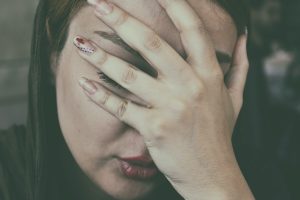Ultimately, if consumed responsibly, coffee poses few risks to healthy individuals. However, like all good things, moderation is key.
Since coffee’s widespread debut in the United States during the late 18th century, many Americans can’t imagine starting their day without their cherished cup of Joe. As of March 2020, the NCA reports that more than 60% of Americans drink coffee every day, with the average consumption being just over three cups.
Yet, regardless that coffee is a staple in American culture, unpleasant and sometimes dangerous health hazards can arise from excess coffee consumption. According to the FDA, these negative side effects are typically experienced after drinking more than four to five cups in one day.
Have you experienced any of these?
Increased Anxiety
Although most people don’t search for ways to raise their anxiety levels, ironically, increased anxiety is a common side effect of consuming too much coffee. Research shows that caffeine in coffee provides a boost of energy by blocking the brain’s chemical adenosine, which causes us to feel tired, while simultaneously releasing the energy-packed adrenaline.
Consequently, if you drink too much coffee, it significantly influences your brain chemicals, turning that pep in your step can turn into increased feelings of nervousness, hypersensitivity, jitters, and stress. Some individuals can even develop caffeine-induced anxiety or psychosis, which is outlined in the DSM by the American Psychiatric Association. So, if you start feeling suddenly uncomfortable while sipping on your coffee, maybe hold off on that next cup.
Disrupted Sleep Patterns
Because coffee is coveted for its ability to keep people awake, it’s no surprise that it can negatively impact one’s ability to sleep. According to the Sleep Foundation, caffeine disrupts slow-wave sleep, which is the process that leaves you feeling refreshed. Therefore, continued lack of healthy sleep from coffee consumption can affect decision-making and other thought processes. Continued disturbed sleep as a result of coffee can also prove to be extremely dangerous. For example, studies have shown that driving while sleep-deprived can impair the driver similar to how alcohol can.
Luckily, it’s unlikely that a few cups in the morning will have much effect by the time you lay down to rest. A general rule of thumb is to not exceed five cups of coffee a day and to avoid drinking it after 5 pm since the effects of caffeine are estimated to last between 4 and 6 hours.
Digestive Problems
It’s no secret that many coffee drinkers rely on their morning java to help induce a bowel movement. Coffee has a laxative effect that is caused by a release of the hormone gastrin, which speeds up the processes in the colon. While there isn’t anything inherently harmful about this, coffee consumption in large amounts can lead to digestive issues such as loose stools and even diarrhea.
Coffee also contains certain acids that if consumed on a large scale show correlation with digestion discomfort. These problems can also be intensified by individuals with preexisting stomach conditions. Furthermore, Healthline explains that the caffeine in coffee can also increase gastroesophageal reflux disease (GERD) in some drinkers. If you’re noticing discomfort throughout the day, take into account how much coffee you’re drinking.
Addiction and Withdrawal

Missing your usual dose of coffee can result in physical withdrawals due to caffeine addiction in heavy coffee drinkers. Although not as severe, consuming caffeine influences the same brain chemicals as cocaine and amphetamines do, causing the body to develop a dependence. When consistently consumed in large doses, this physical and psychological dependency can be hard to break, with common symptoms of withdrawal being:
- Headaches
- Depression
- Fatigue
- Irritability
- Tremors
While most regular coffee drinkers might not experience more than a slight headache without their brew, individuals that regularly exceed the recommended amount may have far more noticeable side effects. If you feel that you may have dug yourself into too deep of a hole to give up entirely, start by limiting the amount you drink each day, and your body will eventually adjust.
Better Safe Than Sorry
Ultimately, if consumed responsibly, coffee poses few risks to healthy individuals. However, like all good things, moderation is key. Coffee may seemingly solve a lot of problems, but it can also create a fair share as well. Keep an eye on your regular intake and listen to your body for when you’ve had too much.


Join the conversation!